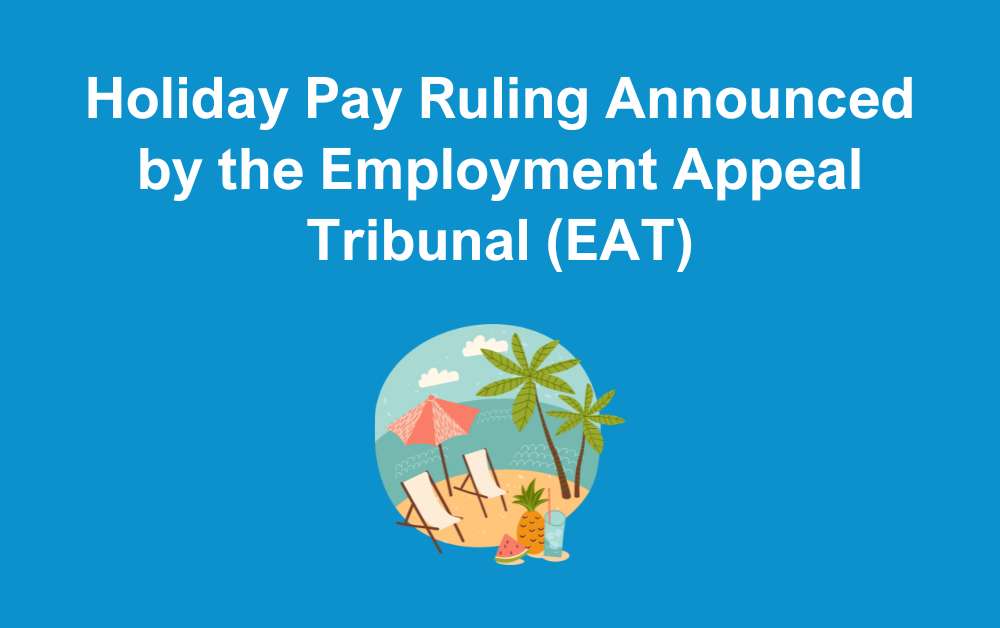You will recall our previous communication regarding this case. The long-awaited outcome was confirmed yesterday. This case centred on what calculations should be included in “holiday pay”.
The cases started when UK airline employees claimed that their holiday pay should include various allowances and supplements which they earned while they were working but which were not included in their holiday pay. The European Court of Justice agreed and set out a formula to decide what should be included in holiday pay.
Another case followed around commission pay, where a sales executive at British Gas claimed that average pay should be taking into account when he was on holiday.
The latest cases included Bear Scotland v Fulton and 2 other cases which focussed on overtime pay. This case was heard in the summer and speculation had been growing since then on the potential outcomes, including how far back claims could go. Some reports had indicated this could stretch back to 1998.
The EAT have decided that non-guaranteed overtime should have been taken into account when calculating workers holiday pay. To make this more complicated this only applies to the 4 weeks Working Time Regulations entitlement and not the additional 1.6 weeks that workers are entitled to in the UK.
The key points from the outcomes yesterday are:
- Workers are entitled to be paid a sum of money to reflect normal non-guaranteed overtime as part of their annual leave payments.
- The ruling applies only to the basic four weeks leave granted under the Working Time Regulations and not the additional 1.6 weeks also available to workers in the UK.
- Claims for arrears of holiday pay would be out of time if there has been a break of more than three months between successive underpayments.
- Some allowances such as Travel Time should also be reflected when calculating holiday pay.
Factors in the decision are that workers should not suffer any detriment by taking holiday and without the additional regular overtime pay during holidays they would be worse off.
However, it does appear that claims for arrears of holiday pay have been limited. Claims will be deemed to be out of time if there has been a break of more than three months between the payments. The mechanism that workers would claim the back pay is via an unlawful deduction from wages claim. The specific details of this have yet to be released, so we will need to wait and see what the final outcome is on backdated claims.
The government is likely to appeal and until the appeal is decided, employers face more uncertainty. In Scotland, there are around another 400 cases waiting to be heard so this isn’t the end of the matter, and it could be another couple of years before the law is finally settled.
Following the report, business secretary Vince Cable has announced he is setting up a new task force to assess the impact of this ruling. The FSB and British Chambers of Commerce are also lobbying to minimise the potential impact on employers.
What should you do just now?
Contact us directly to discuss any concerns you may have, but in the meantime, it would be useful for you to review the following:
- Review your overtime policy
- Assess when the last holidays were taken with affected workers
- Calculate the additional budget required
- Explore ways to reduce and manage overtime and standard allowances







